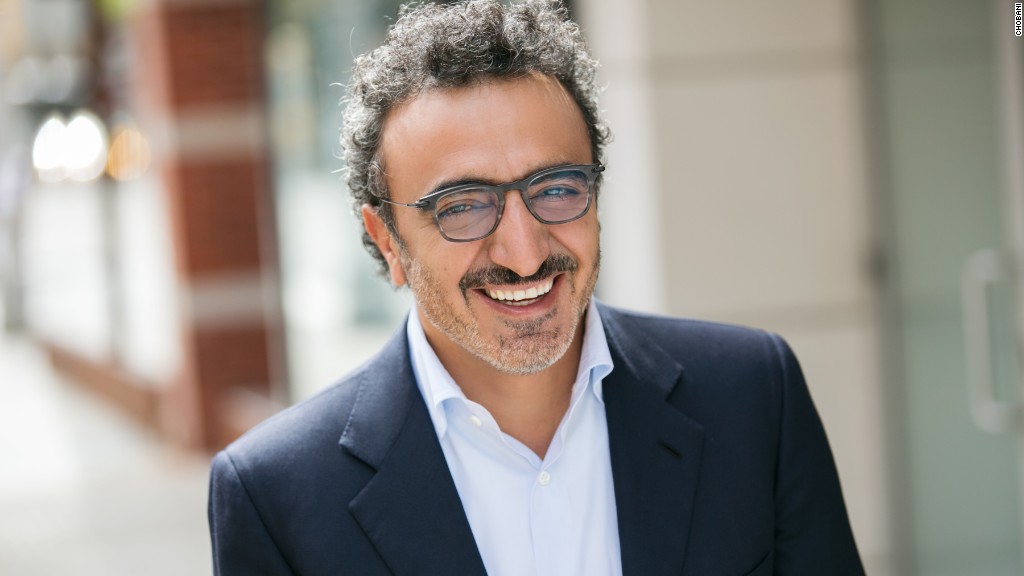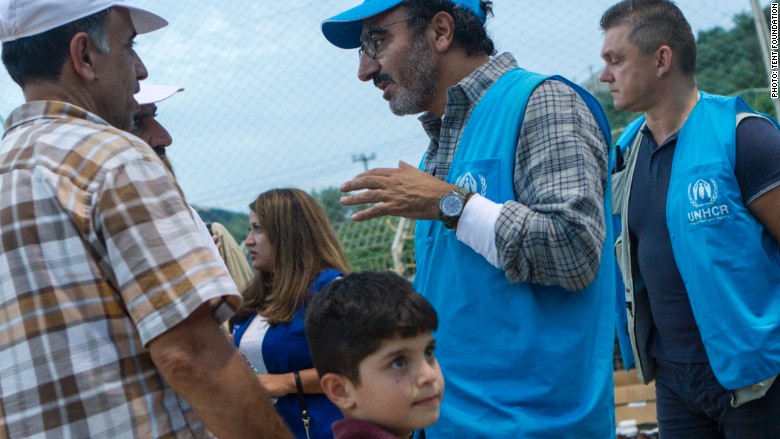
Nadia was a happy teenager living with her family in Iraqi Kurdistan. Then ISIS invaded her village. Her mother and six brothers were killed in a massacre and she and her three sisters were enslaved.
After months of unspeakable brutality, Nadia escaped and found a way to Germany. She never viewed a roadblock as a dead end. She found a way through, even as she faced the most daunting crisis of her young life.
I met her recently at a restaurant in New York. Her courage left me speechless.
As the world's business leaders gather in Davos for the World Economic Forum, Nadia is on my mind.
What would happen if big companies showed some of Nadia's courage and determination? What would happen if they summoned the spirit of innovation and ingenuity to solve the greatest humanitarian crisis of our lives? What if -- to borrow a word from Silicon Valley -- we could "hack" the refugee crisis?
That's what I'm asking business leaders to do in Davos this week.
As people of a free world, we have a moral obligation to the 60 million people who, like Nadia, have been kidnapped or forced from their homes. People who need food, shelter, and opportunity, and have risked their lives to escape something that makes their childhood nightmares now seem like distant dreams.
But it's not just people who can help. Businesses -- and the hundreds of thousands of people they represent -- have a major role to play.
At Chobani, the food company I founded in the United States, we have hired hundreds of refugees in the past five years, and they are some of the most talented, dedicated people I've ever met.
Refugees haven't just helped build our business; they've helped improve our community. The same is true of former refugees like Google (GOOG) co-founder Sergey Brin, Intel (INTC) co-founder Andy Grove, or WhatsApp co-founder Jan Koum -- some of the world's most innovative and successful businesses simply wouldn't exist if they had been turned away in their time of need.
Related: Today's refugee could be tomorrow's entrepreneur
This year, I launched Tent, a personal foundation focused on helping refugees and bringing together the private sector to help end the worst humanitarian crisis since World War II.
Tent has conducted research that shows that refugees' contribution to society far outweighs the costs. Germany's Commerzbank (CRZBF) estimates that refugees will help boost the country's economic growth next year to 1.9% from 1.7%. They are more likely to do jobs that others may not, and add skills that fill gaps in the labor market.
The private sector has a powerful incentive to find new solutions to a crisis that cannot be solved by governments and goodwill alone. We can move faster, think bigger, and modernize approaches to relief and resettlement that haven't changed since the 1940s. We can do what entrepreneurs do best: hack the way we handle this problem.
Some business leaders have stepped up. Airbnb is offering travel credits to relief workers on the ground. LinkedIn will run an innovative pilot project in Sweden that uses data to match refugees with job openings by comparing the skills they have with the skills employers are looking for. Other companies are providing refugees with free computers, access to online education, and packages filled with essentials like soap and sunscreen.
Related: Immigrants: These cities want you!
These actions have inspired us to launch the Tent Pledge and the Tent Challenge. The Tent Pledge asks companies all over the world to step up and do more. We're asking them to provide refugees with job training, employment opportunities, and the kind of direct assistance that experts have identified as a priority -- everything from blankets and water, to debit cards and Internet access.

I'm so proud to announce that our founding partners include Airbnb, Ikea Foundation, MasterCard, LinkedIn, UPS Foundation and Western Union -- and we have more on the way, with the aim to enlist 100 companies by May.
The Tent Challenge will provide grants to entrepreneurs and other individuals who are using data and technology to come up with the most innovative solutions to the refugee crisis. The hope is that we can then replicate these solutions on a much larger scale.
Refugees like Nadia who have seen the worst in humanity deserve to see our best. At stake is an entire generation of men, women, and children who just might grow up to change the world.
Let's help them succeed by changing theirs.
Hamdi Ulukaya is CEO and founder of Chobani and the Tent foundation. The opinions expressed in this commentary are solely those of the author.
